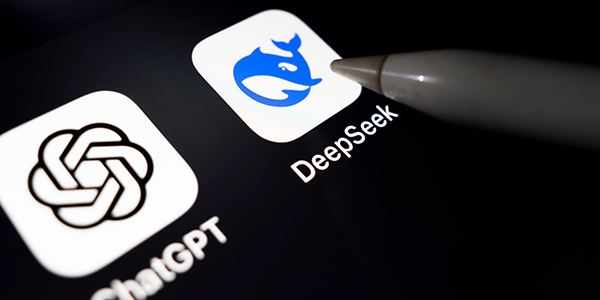How to Stay Safe Using AI Chatbots Like DeepSeek and ChatGPT
DeepSeek, a Chinese artificial intelligence (AI) startup, is making headlines with the launch of its latest model, DeepSeek R1. The new AI system, released last month, delivers performance comparable to OpenAI’s ChatGPT—yet at a fraction of the cost, thanks to its low-memory architecture.
However, DeepSeek’s rise is not without controversy. International regulators are scrutinizing how and where the company collects user data. Italy has banned the app from Apple and Google app stores, while other European nations remain cautious. In the U.S., the House’s chief administrative officer has warned Congress and staffers against using DeepSeek due to security concerns.
What Data Do AI Chatbots Collect?
DeepSeek’s privacy policy reveals that it gathers user data, including:
- Chat and search query history
- Device type and keystroke patterns
- IP address and internet connection details
- Activity from other apps
These data collection practices are not unique to DeepSeek. Other AI chatbots, such as ChatGPT (OpenAI), Claude (Anthropic), and Perplexity, gather similar data. Even mainstream social media platforms like Facebook, Instagram, and X (formerly Twitter) collect extensive user data. Recent articles, including reports from NPR and Forbes, provide numerous tips for staying safe using chatbots like DeepSeek and ChatGPT. We’re highlighting some of those guidelines here.
9 Best Practices for Secure AI Usage
Whether you’re using DeepSeek, ChatGPT, or any other AI chatbot, following security best practices can help protect your personal and professional data. Here’s how:
- Follow Workplace AI Policies – If your employer has AI usage guidelines, adhere to them strictly.
- Use Separate Accounts – Keep personal and work AI interactions separate to avoid data cross-contamination.
- Never Share Sensitive Information – Do not input passwords, Social Security numbers, or other confidential business or personal data.
- Opt Out of AI Training & Data Sharing – Many chatbots allow users to disable data sharing in their settings. Turn it off to enhance privacy.
- Manage Chatbot Memory – Ask the AI, “What do you remember about me?” and clear stored details regularly to limit long-term tracking.
- Secure Your Connection – Use a VPN when accessing AI platforms on public Wi-Fi and enable multifactor authentication (MFA) for added security.
- Avoid Third-Party Logins – Signing in with Google or Facebook can expose your data across platforms. Apple ID offers more privacy controls.
- Disable Autocomplete Features – This reduces the risk of accidentally exposing sensitive data while chatting.
- Verify AI-Generated Content – Chatbots are not always accurate. Fact-check responses before acting on the information provided.
AI chatbots like DeepSeek and ChatGPT offer incredible convenience, but they also pose privacy and security risks. By following these best practices, you can minimize potential threats while safely leveraging AI technology.
Protect Your Data
A Privacy Risk Analysis can identify, evaluate, and mitigate potential privacy risks within your organization. Our team is ready to collaborate with you to ensure the highest level of privacy protection for your organization and the individuals you serve.





